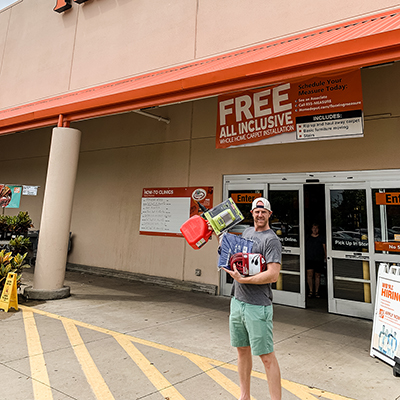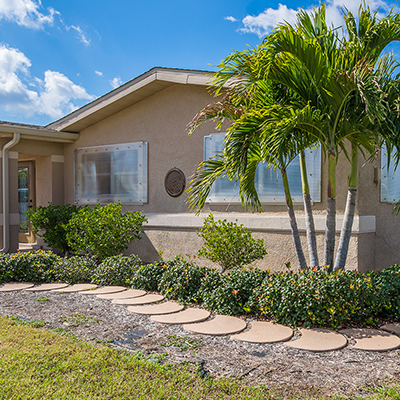Recovering from a Hurricane
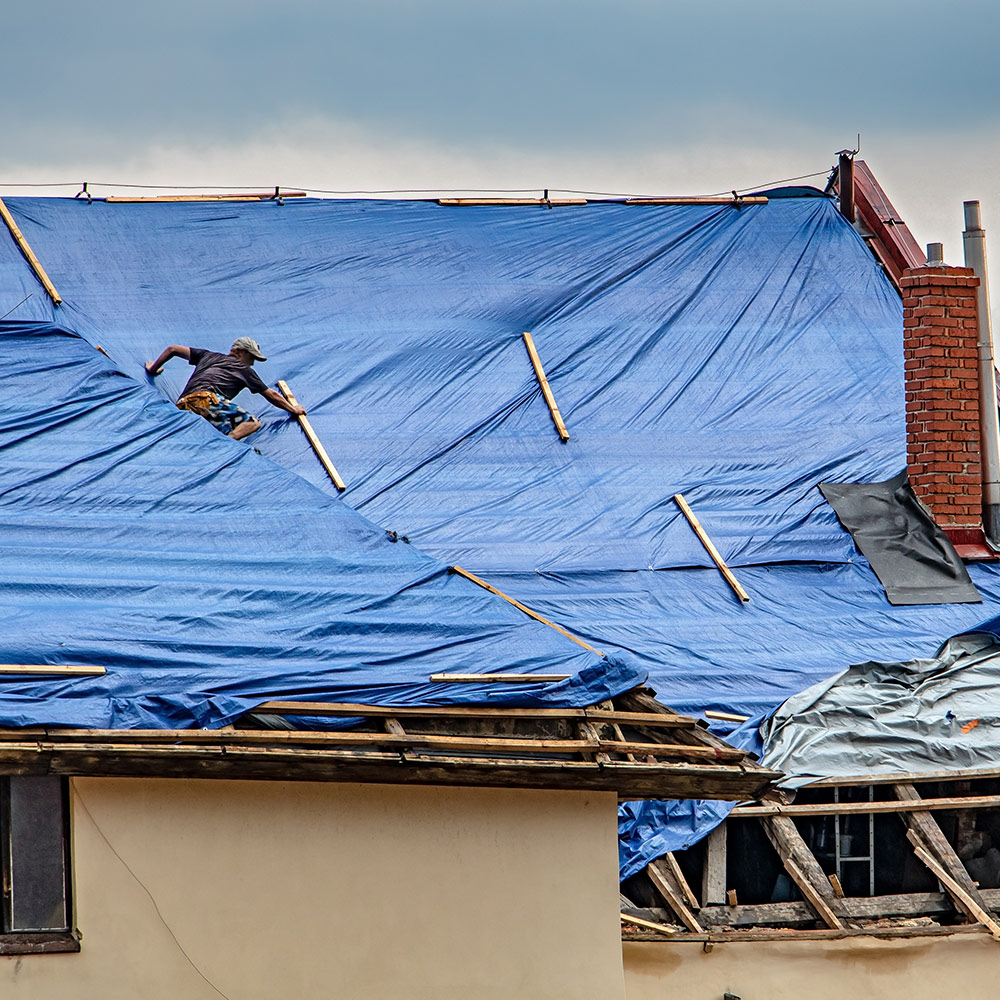
Last updated September 7, 2023
In seconds, a hurricane can change everything. Hurricanes are serious tropical storms that cause wind damage, flooding and health hazards that can disrupt lives and cause severe property damage. Recovering from this type of natural disaster takes time and resources. Although the process can be stressful, having a plan can help. Read on for an outline of steps that can organize your recovery efforts. Plus, get facts, tips and numbers that can help you stay safe and get the help you need.
Difficulty:
Beginner
Duration:
Over 1 day
Table of Contents
After the Storm
Cleaning Up
Use a Generator Correctly
Dealing with Damage
Avoid Scams
Apartment or Condo Dweller Recovery Tips
After the Storm
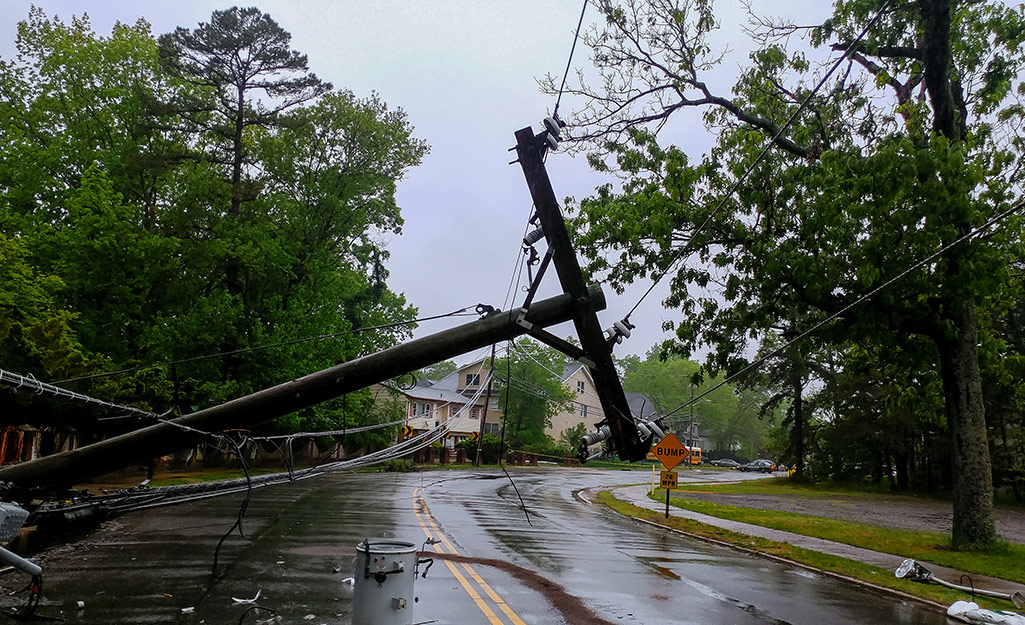
After a hurricane, it’s important to remain safe and uninjured. Go back to your home only after authorities say it is safe to do so. Along the route, look out for any new warning or detour signs. Here are general tips once the storm has moved on:
- Be prepared to show authorities identification when entering a disaster area.
- Underground or downed power lines can electrify water.
- Do not wade in flood water. It can contain illness-causing toxins and bacteria.
- Use phone calls for emergencies only. Choose text messages or social media instead.
- Six inches of moving water can knock you down. Avoid driving through or standing in water. A foot of water can sweep a car or other vehicle away.
- If you use gas lines in your home, check for leaks.
- Throw out any food in the fridge that’s been at a temperature of 40 degrees Fahrenheit for two hours or more.
- Don’t use or drink tap water until local authorities say it is safe.
Cleaning Up
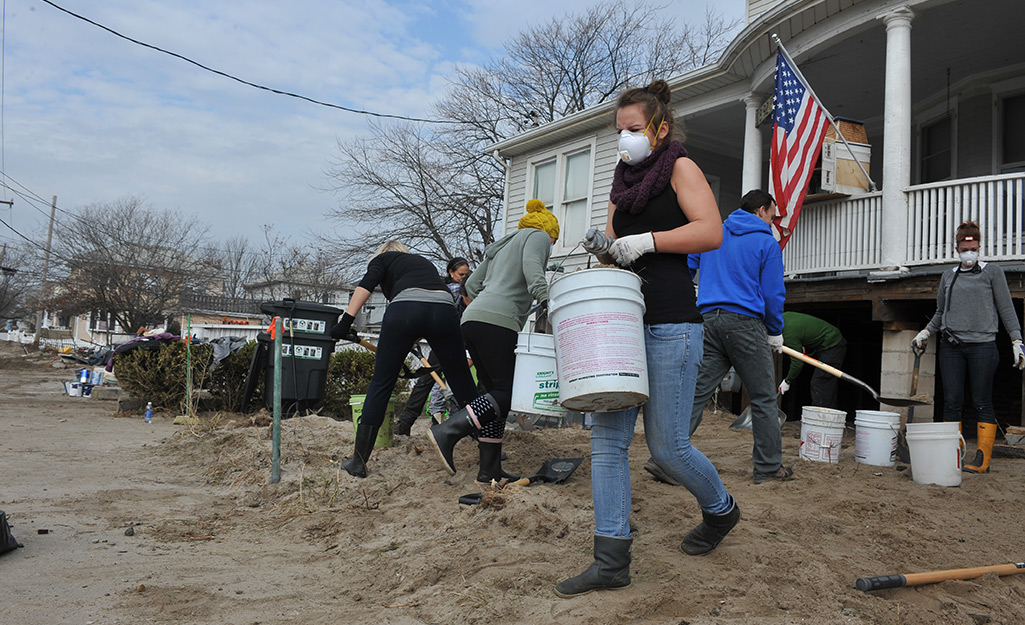
A major step toward recovering from a serious storm is getting your property cleaned up. It can take a lot of work to get your home back in good shape. Be extra careful cleaning up, because there can be down power lines, broken glass and other hazards.
- Keep a minimum of 10 feet away from any loose, dangling or downed power lines.
- Watch your step. Look out for broken glass and exposed nails.
- Work with others if possible. Many tasks may take two or more people.
- Look out for falling debris from trees or damaged buildings.
- Turn off electricity at the main breaker or fuse box of your home to prevent electric shock.
- Wear protective clothing and use face coverings or masks. Storm debris can contain mold, chemicals and other health hazards.
- Children and those with chronic illnesses should not help with disaster cleanup work.
Use a Generator Correctly
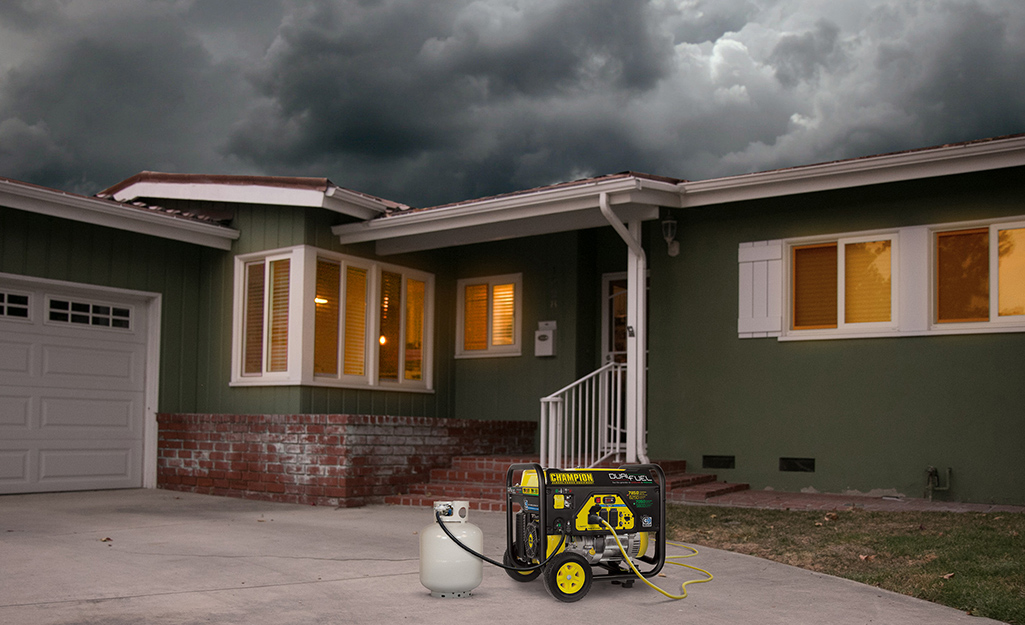
A hurricane or other serious storm can wreak havoc on local power grids. If your power isn’t on or is sporadic, a fuel-powered generator can help you keep the lights on and more. When using a generator, make sure to follow all the manufacturer’s safety and use instructions.
- Never use a generator inside your home or garage.
- Keep the generator at least 20 feet away from your home.
- If you feel dizzy or sick, get fresh air immediately. Call 911.
- Get the right size generator for your needs.
- Place and run your generator on a level surface.
- Keep the generator away from water.
- Avoid using multiple extension cords.
- Never refuel a generator while it is running. Turn it off and allow it to cool down first.
- Always connect the generator to appliances with heavy-duty extension cords.
- Never connect your generator directly into your home power supply. A surge of voltage can occur, causing damage to power lines and serious injury to utility workers.
Dealing with Damage
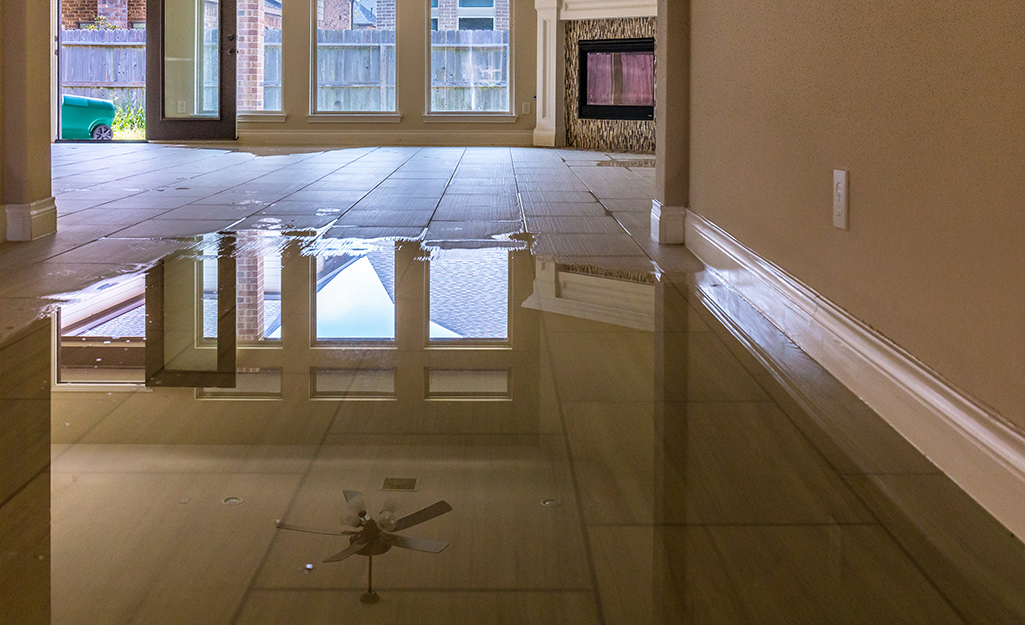
Get a handle on exactly what damage and expenses you have. This will make it easier to get the help and funds you need to recover from the hurricane. Stay safe and use caution as you survey the inside and outside of your home.
- Make temporary repairs first. Cover roofs with tarps and broken windows with plastic.
- Check inside and outside your home, as well as around you and overhead.
- Check for structural damage such as shifting, cracks in the foundation and damage to pipes.
- Check for outdoor damage such as downed trees, torn up landscaping, holes made by flying debris and missing furniture or tools.
- Take as many clear and detailed photos of your home, furniture and other damaged property as possible. Be specific about the damage you see.
- Salvage what you can and make notes about any repairs the items might need.
- Take water damage seriously. Note any possible mold issues and have it treated properly.
- Work with your insurance company and file your claim quickly. Some policies may cover temporary housing, debris removal, mold remediation and replacing personal property.
Tip: Check with your mortgage company or landlord to see if they offer any payment relief as you recover from a hurricane.
Avoid Scams
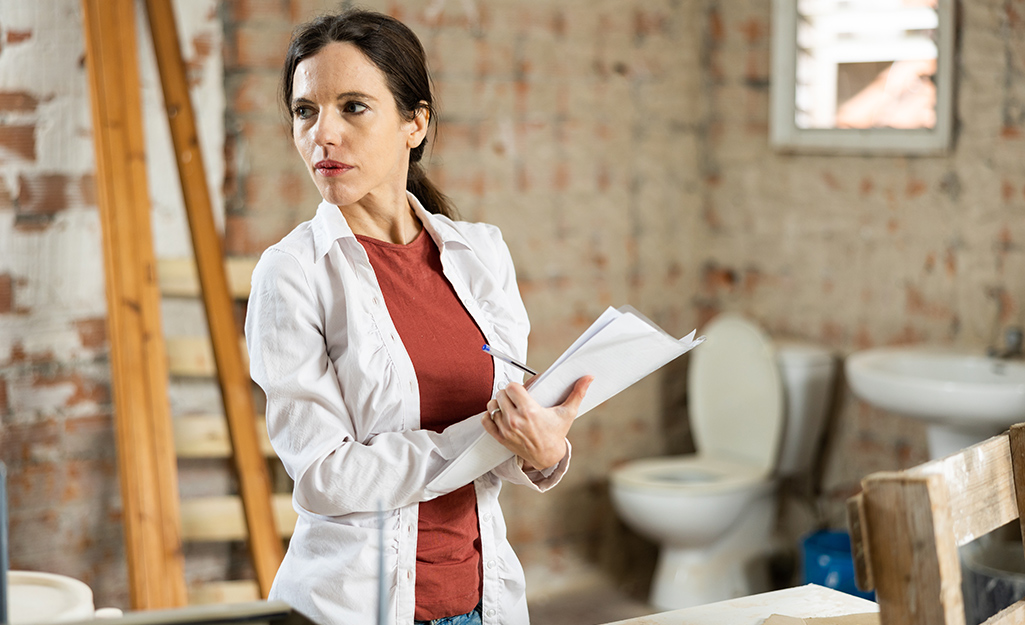
Unfortunately, natural disasters can bring out both the best and worst in people. Make sure you use reputable, bonded contractors and laborers to help you repair and restore your home. Get the contractor’s license number, phone number and business name. Common scam warning signs include:
- Following a damaging storm, be wary of unsolicited calls or door-to-door
workers in your area. - If it sounds too good to be true, it is.
- Never give bank account, policy numbers, coverage details or other personal information before you have a written contract.
- Check credentials and call the company when someone says they are from FEMA, local disaster relief or your insurance company.
- Beware of anyone who asks for cash or full payment before doing work.
- Always get estimates, timelines and everything agreed on in writing.
Tip: Check FEMA and your state’s site for known fraud warnings. To report fraud, call the Disaster Fraud Hotline at 1-866-720-5721.
Apartment or Condo Dweller Recovery Tips
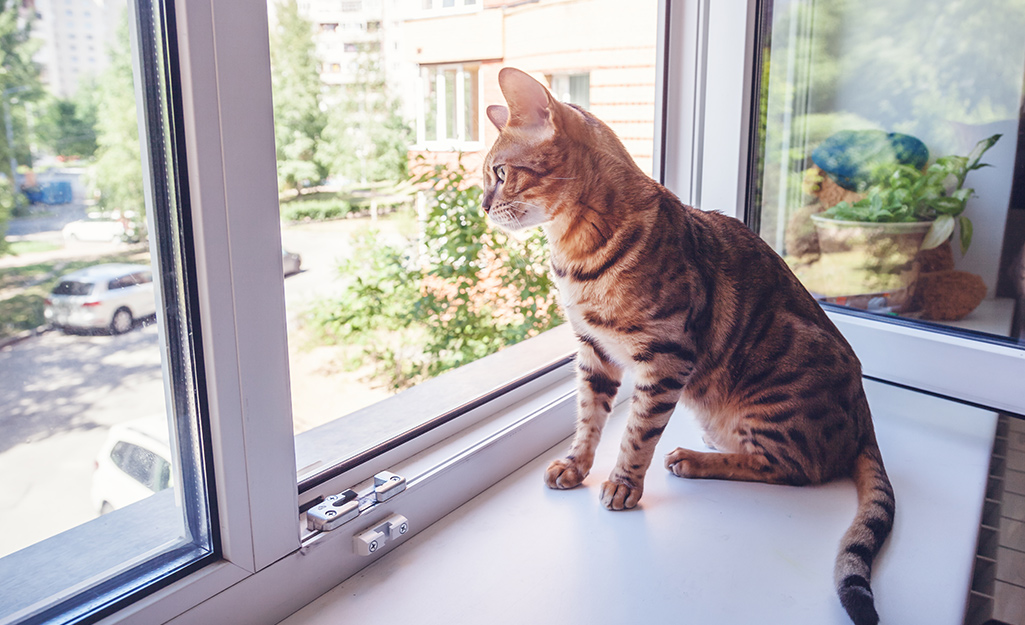
Here’s some additional recovery tips if you live in an apartment or condo community. In addition to all the safety issues listed above, here are a few tips:
- Don't return to your complex unless local officials say it is safe.
- Don’t return to your apartment or condo until your complex management or association verifies the building is structurally sound.
- The management or association is responsible for cleanup of the grounds and other areas outside your apartment.
- Check your insurance coverage and assess your damage.
- Ask the apartment management what is covered by their insurance.
- Have a plan to check on neighbors, especially those that are elderly or confined.
Wildlife & Pests
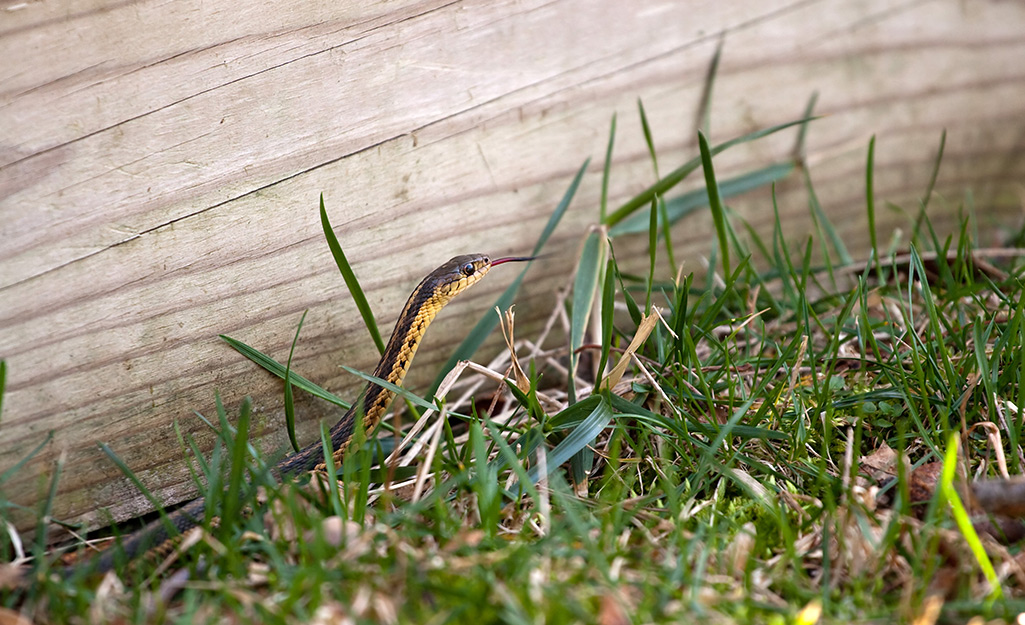
Hurricane winds and flooding drives pets, snakes, rats, racoons, alligators and other wild animals from their homes. Both animals and insects will seek shelter in cars, buildings and trees after a hurricane. Look for entryway points into your home around damaged areas. Seal these areas as soon as possible to help prevent an invasion or pest infestation.
Sometimes these animals and lost pets can be badly injured. Use caution when dealing with wild or injured animals. Get treatment for any bites and let the animal control professionals in your area handle the problem.
Tip: Use caulk and steel wool to plug holes and help block insects and other pests.
More Hurricane Recovery Tips
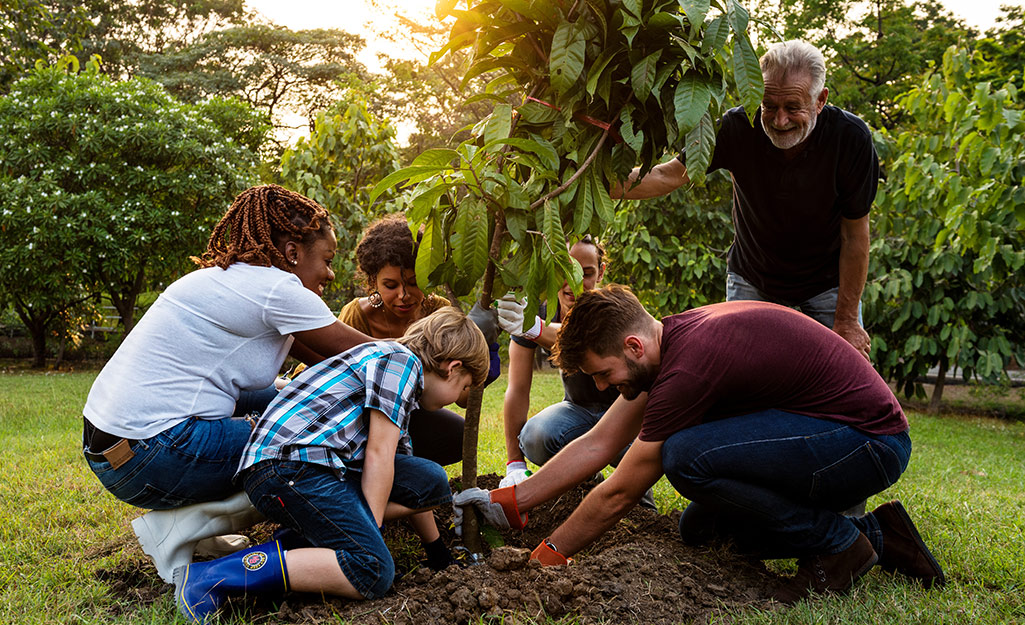
Recovering from a national disaster can be slow, stressful and sometimes overwhelming. The right resources can make a difference. Below are tips and information about disaster recovery programs:
- Keep short-term and long-term goals in mind. Be realistic about material and labor availabilities. Create a checklist of repairs that can be done fairly quickly and those that may take months to complete.
- The emotional strain of recovering from a natural disaster can be difficult and very tough to handle alone. Consider personal or family counseling. The Disaster Distress Helpline from the Substance Abuse and Mental Health Services Administration (SAMHSA) offers confidential crisis support, 24 hours a day, 365 days a year at 1-800-985-5990.
- FEMA (Federal Emergency Management Agency) has programs including grants for basic, critical needs. The Disaster Home Reconstruction Mortgage Program can help you rebuild or buy a new home if you lost it during a disaster. FEMA can also help rent a temporary place or reimburse hotel expenses for short periods of time.
- If you’re in a declared emergency zone, think about contacting your state about food assistance under the Disaster Supplemental Nutrition Assistance Program (D-SNAP) or other programs.
- Take charge and plan now for any future storms. Re-stock emergency supplies and consider adding hurricane shutters. Create or review your pre-storm plan and make sure you have all the insurance coverages you need.
Once a hurricane hits, the recovery starts. It’s important to stay safe as you clean up and assess your damage. Make sure to prevent further damage by covering roofs or broken windows as quickly as possible. Make a doable list of repairs and exercise caution when hiring contractors. Recovering from a hurricane takes time, resources and help. Prepare for future storms, and look into adding more stormproof options to your home. Use The Home Depot Mobile App to locate products and check inventory. We'll take you to the exact aisle and bay. Or you can consider tool rental to get your project done. Use once, then bring it back – no maintenance required.
